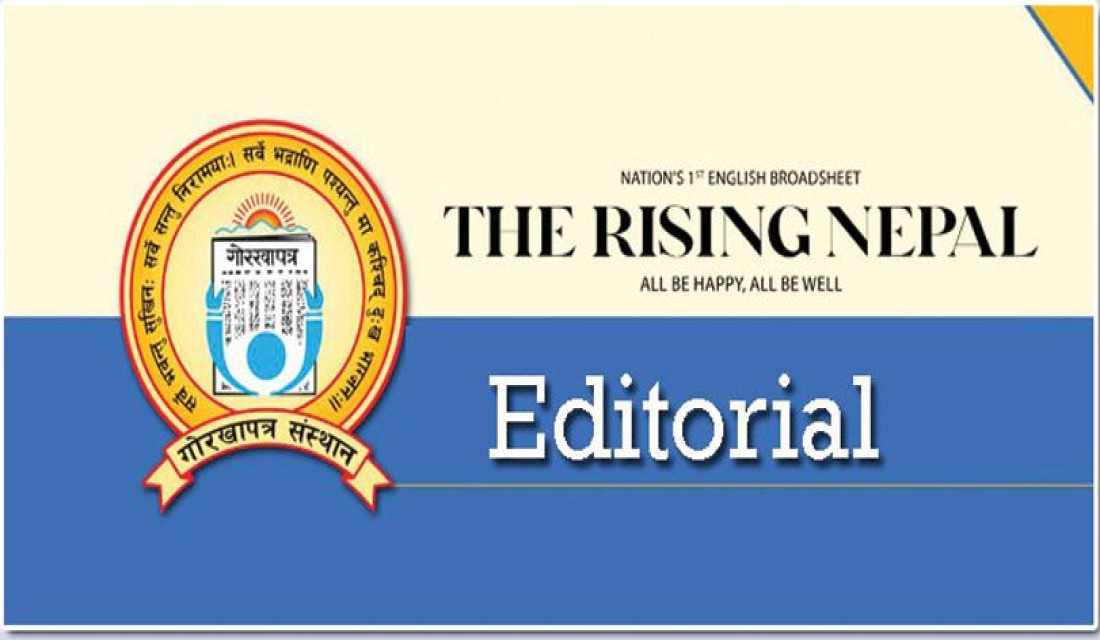- Friday, 26 April 2024
Nepal-Qatar Bond
His Highness Sheikh Tamim bin Hamad Al-Thani, Amir of the State of Qatar, wrapped up his two-day visit to Nepal on Wednesday. The first-ever visit by Qatari monarch has ushered Nepal-Qatar relations into a ne
Unity For Stability
Political stability still remains elusive due to the making and breaking of the governments. Resulting uncertainty has generated mistrust among citizens. For democracy to be functional, people should have confiden
Balancing Trade
Nepal's stubbornly high trade deficit continues to be a cause for concern. According to the statistics of the Department of Customs made public recently, Nepal has incurred a trade deficit of Rs. 1,053.42 billion in the
Expedite Power Trade
With Nepal adopting free market economy since early 1990s, the private sector has played an important role in the economic development. The constitution has recognised the public, private and cooperatives
Douse Forest Fires
Each year in the dry months from mid-March to mid-May, the news of forest fires and loss of lives, property, biodiversity and soil quality make the headlines. But the preparedness and contingency plans to combat t
Towards Greener Economy
A green economy is a low carbon, resource efficient and socially inclusive economy, according to United Nations Environment Programme (UNEP). Such an economy seeks to drive employment and income growth thr
Attracting Investors
Despite having abundant natural resources, Nepal has been unable to tap them in the absence of capital, technology and competent human resources. Nepal began to interact with the outside world more than seven decades
Groundbreaking Triumph
In the culmination of six years of dedicated construction efforts, Nepal celebrates a monumental achievement: the completion of the Nagdhunga tunnel. The breakthrough of the tunnel marks a significant milestone in
Overhaul Revenue Collection
The government has recently stepped up its spending. And a lion's share of that expenditure has come through transferring funds from non-expending projects. Because the Act on Financial Procedures and Financi
Vitalise Health Sector
It is rightly said that health is wealth. People’s physical and mental well-being is far more important than their material gains because they cannot derive happiness from wealth if one is physically frail or mentally ill. Thi
Saving Snow Leopard
Over the years Nepal has made a significant progress in wildlife conservation. The active participation of communities, anti-poaching measures and initiatives to restore habitats played a crucial role in the conservation of
Act Urgently On Climate
First it was the hottest June on record, then the July was the hottest, and the trend followed through December. Eventually, year 2023 was declared the hottest year on record. Nearly three–and-a-half month















